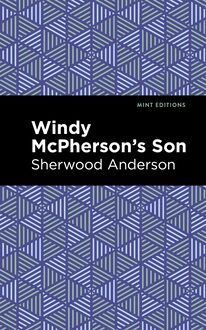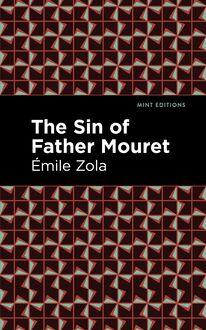-
 Univers
Univers
-
 Ebooks
Ebooks
-
 Livres audio
Livres audio
-
 Presse
Presse
-
 Podcasts
Podcasts
-
 BD
BD
-
 Documents
Documents
-
- Cours
- Révisions
- Ressources pédagogiques
- Sciences de l’éducation
- Manuels scolaires
- Langues
- Travaux de classe
- Annales de BEP
- Etudes supérieures
- Maternelle et primaire
- Fiches de lecture
- Orientation scolaire
- Méthodologie
- Corrigés de devoir
- Annales d’examens et concours
- Annales du bac
- Annales du brevet
- Rapports de stage
La lecture à portée de main
Vous pourrez modifier la taille du texte de cet ouvrage
Découvre YouScribe en t'inscrivant gratuitement
Je m'inscrisDécouvre YouScribe en t'inscrivant gratuitement
Je m'inscrisEn savoir plus
Vous pourrez modifier la taille du texte de cet ouvrage
En savoir plus

Description
”The greatest writer of his time.”-Edmund Wilson
“One of the great poets of the novel, a genius of his art”-Edgar Johnson
”His characters are marvelous, his insights wonderful…you don’t expect reality but you get something bigger and better.”-Ruth Rendell
The Old Curiosity Shop was initially published in a weekly serial, “Master Humphrey’s Clock”, between 1840 and 1841. Charles Dickens’ story of the frail and innocent orphan had become such a phenomenon that New Yorkers stormed to the wharf in expectation of the ship carrying the final episode from England. The Old Curiosity Shop, ultimately published in book form in 1841, is considered a lesser known work from Dickens, yet its moving story is one of the finest examples of sentimental Victorian literature.
Nell Trent, the protagonist of this novel, is an overwhelmingly good little girl who is orphaned into the care of her Grandfather, the purveyor of an odds and ends shop. Her grandfather is a benevolent man, yet he hides behind a dark secret; he has been consumed with the habit of gambling; eventually he gambles away his shop to his creditor Daniel Quilp, one of the most heinous of all of Dickens’ villains. Nell and her grandfather flee London and, in their pursuit, they encounter a range of characters that are both goodhearted and the embodiment of evil. The Old Curiosity Shop is an insightful tragedy of sorrows that that brilliantly paints the range of human intention.
With an eye-catching new cover, and professionally typeset manuscript, this edition of The Old Curiosity Shop is both modern and readable.
Sujets
Informations
| Publié par | Mint Editions |
| Date de parution | 06 octobre 2020 |
| Nombre de lectures | 0 |
| EAN13 | 9781513268125 |
| Langue | English |
| Poids de l'ouvrage | 1 Mo |
Informations légales : prix de location à la page 0,0600€. Cette information est donnée uniquement à titre indicatif conformément à la législation en vigueur.
Extrait
The Old Curiosity Shop
Charles Dickens
The Old Curiosity Shop was first published in 1840.
This edition published by Mint Editions 2020.
ISBN 9781513266169 | E-ISBN 9781513268125
Published by Mint Editions®
minteditionbooks.com
Publishing Director: Jennifer Newens
Project Manager: Gabrielle Maudiere
Design & Production: Rachel Lopez Metzger
Typesetting: Westchester Publishing Services
C ONTENTS C HAPTER 1 C HAPTER 2 C HAPTER 3 C HAPTER 4 C HAPTER 5 C HAPTER 6 C HAPTER 7 C HAPTER 8 C HAPTER 9 C HAPTER 10 C HAPTER 11 C HAPTER 12 C HAPTER 13 C HAPTER 14 C HAPTER 15 C HAPTER 16 C HAPTER 17 C HAPTER 18 C HAPTER 19 C HAPTER 20 C HAPTER 21 C HAPTER 22 C HAPTER 23 C HAPTER 24 C HAPTER 25 C HAPTER 26 C HAPTER 27 C HAPTER 28 C HAPTER 29 C HAPTER 30 C HAPTER 31 C HAPTER 32 C HAPTER 33 C HAPTER 34 C HAPTER 35 C HAPTER 36 C HAPTER 37 C HAPTER 38 C HAPTER 39 C HAPTER 40 C HAPTER 41 C HAPTER 42 C HAPTER 43 C HAPTER 44 C HAPTER 45 C HAPTER 46 C HAPTER 47 C HAPTER 48 C HAPTER 49 C HAPTER 50 C HAPTER 51 C HAPTER 52 C HAPTER 53 C HAPTER 54 C HAPTER 55 C HAPTER 56 C HAPTER 57 C HAPTER 58 C HAPTER 59 C HAPTER 60 C HAPTER 61 C HAPTER 62 C HAPTER 63 C HAPTER 64 C HAPTER 65 C HAPTER 66 C HAPTER 67 C HAPTER 68 C HAPTER 69 C HAPTER 70 C HAPTER 71 C HAPTER 72 C HAPTER 73
Chapter 1
A lthough I am an old man, night is generally my time for walking. In the summer I often leave home early in the morning, and roam about fields and lanes all day, or even escape for days or weeks together; but, saving in the country, I seldom go out until after dark, though, Heaven be thanked, I love its light and feel the cheerfulness it sheds upon the earth, as much as any creature living.
I have fallen insensibly into this habit, both because it favours my infirmity and because it affords me greater opportunity of speculating on the characters and occupations of those who fill the streets. The glare and hurry of broad noon are not adapted to idle pursuits like mine; a glimpse of passing faces caught by the light of a street-lamp or a shop window is often better for my purpose than their full revelation in the daylight; and, if I must add the truth, night is kinder in this respect than day, which too often destroys an air-built castle at the moment of its completion, without the least ceremony or remorse.
That constant pacing to and fro, that never-ending restlessness, that incessant tread of feet wearing the rough stones smooth and glossy—is it not a wonder how the dwellers in narrows ways can bear to hear it! Think of a sick man in such a place as Saint Martin’s Court, listening to the footsteps, and in the midst of pain and weariness obliged, despite himself (as though it were a task he must perform) to detect the child’s step from the man’s, the slipshod beggar from the booted exquisite, the lounging from the busy, the dull heel of the sauntering outcast from the quick tread of an expectant pleasure-seeker—think of the hum and noise always being present to his sense, and of the stream of life that will not stop, pouring on, on, on, through all his restless dreams, as if he were condemned to lie, dead but conscious, in a noisy churchyard, and had no hope of rest for centuries to come.
Then, the crowds forever passing and repassing on the bridges (on those which are free of toll at least), where many stop on fine evenings looking listlessly down upon the water with some vague idea that by and by it runs between green banks which grow wider and wider until at last it joins the broad vast sea—where some halt to rest from heavy loads and think as they look over the parapet that to smoke and lounge away one’s life, and lie sleeping in the sun upon a hot tarpaulin, in a dull, slow, sluggish barge, must be happiness unalloyed—and where some, and a very different class, pause with heavier loads than they, remembering to have heard or read in old time that drowning was not a hard death, but of all means of suicide the easiest and best.
Covent Garden Market at sunrise too, in the spring or summer, when the fragrance of sweet flowers is in the air, over-powering even the unwholesome streams of last night’s debauchery, and driving the dusky thrush, whose cage has hung outside a garret window all night long, half mad with joy! Poor bird! the only neighbouring thing at all akin to the other little captives, some of whom, shrinking from the hot hands of drunken purchasers, lie drooping on the path already, while others, soddened by close contact, await the time when they shall be watered and freshened up to please more sober company, and make old clerks who pass them on their road to business, wonder what has filled their breasts with visions of the country.
But my present purpose is not to expatiate upon my walks. The story I am about to relate, and to which I shall recur at intervals, arose out of one of these rambles; and thus I have been led to speak of them by way of preface.
One night I had roamed into the City, and was walking slowly on in my usual way, musing upon a great many things, when I was arrested by an inquiry, the purport of which did not reach me, but which seemed to be addressed to myself, and was preferred in a soft sweet voice that struck me very pleasantly. I turned hastily round and found at my elbow a pretty little girl, who begged to be directed to a certain street at a considerable distance, and indeed in quite another quarter of the town.
“ It is a very long way from here, ” said I, “ my child. ”
“ I know that, sir, ” she replied timidly. “ I am afraid it is a very long way, for I came from there to-night. ”
“ Alone? ” said I, in some surprise.
“ Oh, yes, I don’t mind that, but I am a little frightened now, for I had lost my road. ”
“ And what made you ask it of me? Suppose I should tell you wrong? ”
“ I am sure you will not do that, ” said the little creature, “ you are such a very old gentleman, and walk so slow yourself. ”
I cannot describe how much I was impressed by this appeal and the energy with which it was made, which brought a tear into the child’s clear eye, and made her slight figure tremble as she looked up into my face.
“ Come, ” said I, “ I’ll take you there. ”
She put her hand in mine as confidingly as if she had known me from her cradle, and we trudged away together; the little creature accommodating her pace to mine, and rather seeming to lead and take care of me than I to be protecting her. I observed that every now and then she stole a curious look at my face, as if to make quite sure that I was not deceiving her, and that these glances (very sharp and keen they were too) seemed to increase her confidence at every repetition.
For my part, my curiosity and interest were at least equal to the child’s, for child she certainly was, although I thought it probably from what I could make out, that her very small and delicate frame imparted a peculiar youthfulness to her appearance. Though more scantily attired than she might have been she was dressed with perfect neatness, and betrayed no marks of poverty or neglect.
“ Who has sent you so far by yourself? ” said I.
“ Someone who is very kind to me, sir. ”
“ And what have you been doing? ”
“ That, I must not tell, ” said the child firmly.
There was something in the manner of this reply which caused me to look at the little creature with an involuntary expression of surprise; for I wondered what kind of errand it might be that occasioned her to be prepared for questioning. Her quick eye seemed to read my thoughts, for as it met mine she added that there was no harm in what she had been doing, but it was a great secret—a secret which she did not even know herself.
This was said with no appearance of cunning or deceit, but with an unsuspicious frankness that bore the impress of truth. She walked on as before, growing more familiar with me as we proceeded and talking cheerfully by the way, but she said no more about her home, beyond remarking that we were going quite a new road and asking if it were a short one.
While we were thus engaged, I revolved in my mind a hundred different explanations of the riddle and rejected them every one. I really felt ashamed to take advantage of the ingenuousness or grateful feeling of the child for the purpose of gratifying my curiosity. I love these little people; and it is not a slight thing when they, who are so fresh from God, love us. As I had felt pleased at first by her confidence I determined to deserve it, and to do credit to the nature which had prompted her to repose it in me.
There was no reason, however, why I should refrain from seeing the person who had inconsiderately sent her to so great a distance by night and alone, and as it was not improbable that if she found herself near home she might take farewell of me and deprive me of the opportunity, I avoided the most frequented ways and took the most intricate, and thus it was not until we arrived in the street itself that she knew where we were. Clapping her hands with pleasure and running on before me for a short distance, my little acquaintance stopped at a door and remaining on the step till I came up knocked at it when I joined her.
A part of this door was of glass unprotected by any shutter, which I did not observe at first, for all was very dark and silent within, and I was anxious (as indeed the child was also) for an answer to our summons. When she had knocked twice or thrice there was a noise as if some person were moving inside, and at length a faint light appeared through the glass which, as it approached very slowly, the bearer having to make his way through a great many scattered articles, enabled me to see both what kind of person it was who advanced and what kind of place it was through which he came.
It was an old man with long grey hair, whose face and figure as he held the light above his head and looked before him as he approached, I could plainly see. Though much altered by age, I fancied I could
-
 Univers
Univers
-
 Ebooks
Ebooks
-
 Livres audio
Livres audio
-
 Presse
Presse
-
 Podcasts
Podcasts
-
 BD
BD
-
 Documents
Documents
-
Jeunesse
-
Littérature
-
Ressources professionnelles
-
Santé et bien-être
-
Savoirs
-
Education
-
Loisirs et hobbies
-
Art, musique et cinéma
-
Actualité et débat de société
-
Jeunesse
-
Littérature
-
Ressources professionnelles
-
Santé et bien-être
-
Savoirs
-
Education
-
Loisirs et hobbies
-
Art, musique et cinéma
-
Actualité et débat de société
-
Actualités
-
Lifestyle
-
Presse jeunesse
-
Presse professionnelle
-
Pratique
-
Presse sportive
-
Presse internationale
-
Culture & Médias
-
Action et Aventures
-
Science-fiction et Fantasy
-
Société
-
Jeunesse
-
Littérature
-
Ressources professionnelles
-
Santé et bien-être
-
Savoirs
-
Education
-
Loisirs et hobbies
-
Art, musique et cinéma
-
Actualité et débat de société
- Cours
- Révisions
- Ressources pédagogiques
- Sciences de l’éducation
- Manuels scolaires
- Langues
- Travaux de classe
- Annales de BEP
- Etudes supérieures
- Maternelle et primaire
- Fiches de lecture
- Orientation scolaire
- Méthodologie
- Corrigés de devoir
- Annales d’examens et concours
- Annales du bac
- Annales du brevet
- Rapports de stage
















